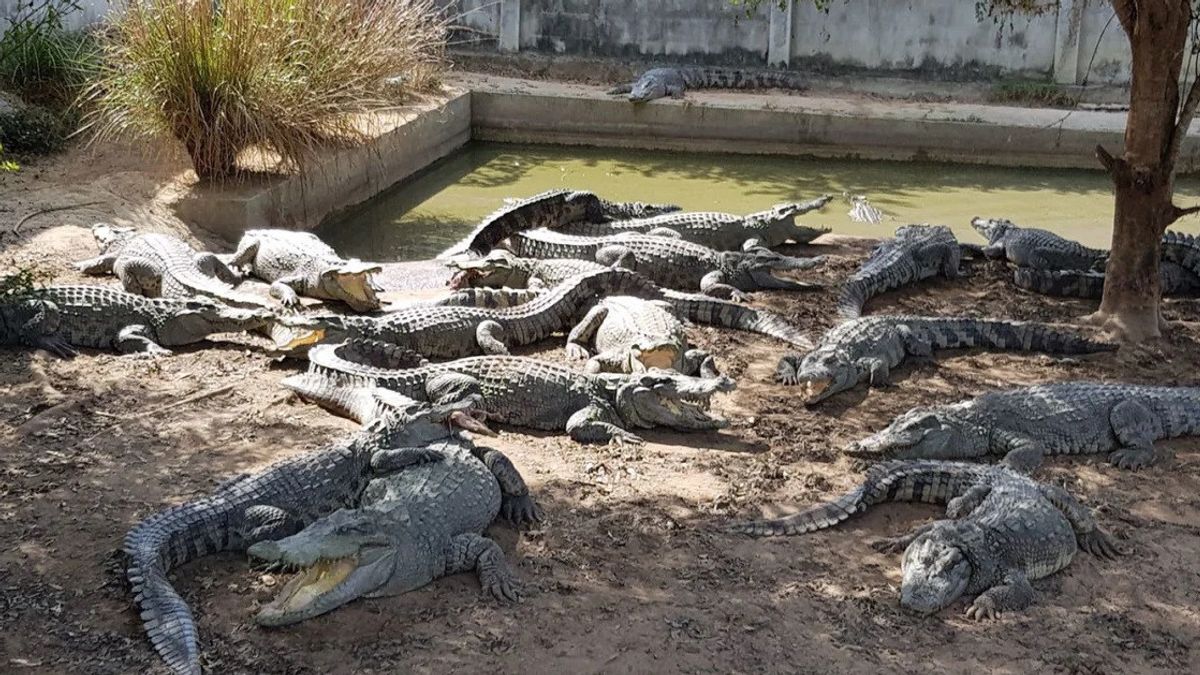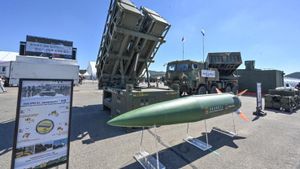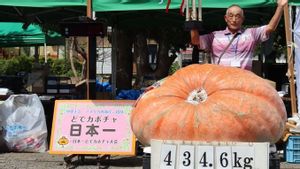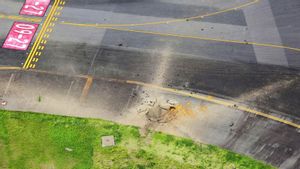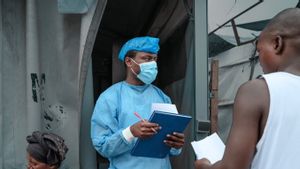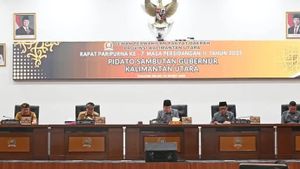JAKARTA - A crocodile breeder in Thailand nicknamed "Buaya X" was forced to kill more than 100 endangered crocodiles, to prevent them from escaping after its cage was damaged by Topan Yagi.
Natthapak Khumkad, 37, who runs a crocodile farm in Lamphun, northern Thailand, said he was rushing to find a new home for his Siam crocodile, when he saw a wall securing their cage at risk of collapse.
However, there is no place big enough or safe enough to ground the crocodiles, some of which are 4 meters (13 feet) long.
To prevent the crocodiles from escaping to the local community, Natthapak said he killed 125 crocodiles on September 22.
"I have to make the most difficult decisions in my life to kill them all," he told CNN, as quoted October 1.
"My family and I discussed if the wall collapses, damage to people's lives will be much bigger than we can control. This will involve people's lives and public safety," he continued.
Natthapak said his farm had been open for 17 years and had survived every rainy season until this year, when heavy rains for days eroded the crocodile's tank wall.
"I had to make a decision in less than 24 hours when I saw erosion go fast," Natthapak said, adding he tackled a crocodile to kill them.
Natthapak recalled that his family's initial business was selling roast pork and saplings. However, as soon as he realized how much garbage was left, he decided to use it to feed crocodiles. His family bought five crocodiles, and the number has continued to grow in nearly two decades since then.
The farm supplies crocodile skin to a skin factory, sells frozen meat in Thailand and exports dried crocodile meat to Hong Kong.
After this incident, he still had 500 baby crocodiles, which were 30-120 centimeters (1-4 ft) long.
Meanwhile, Pornthip Nualang, head of the Lamphun Fisheries Office, said Natthapak informed his office when heavy rains began to threaten the farm.
Killing the crocodiles was "a bold and responsible decision, because if the adult crocodile roams freely in nearby rice fields, it will cause (a serious risk) to public safety," he said.
Among the crocodiles killed was a man named Ai Harn, the oldest male builder and herd leader, with a length of 4 meters (13 feet).
The video shows a digger lifting the bodies of the crocodiles.
It is known that conjoined crocodiles are threatened with extinction, but they are widely sold and bred in Thailand. Crocodile cultivation is a profitable industry there, with around 1,100 commercial livestock listed generating revenues between 6 billion and 7 billion Thai baht (215 million US dollars) annually, said Pornthip.
They were once discovered in much of Southeast Asia, but large-scale hunting and livestock have greatly reduced the population of conjoined crocodiles in the wild, with some estimates saying the numbers are only a few hundred.
Earlier this year, 60 American crocodile eggs hatched in Cambodia, the largest breeding event recorded for this species in the century.
Typhoon Yagi, Asia's strongest storm this year, hit southern China and Southeast Asia this month, leaving traces of destruction with heavy rainfall and strong winds. Heavy rains flooded the northern region of Thailand, sinking houses and villages along the river, killing at least nine people.
Storms like Yagi are "increasingly stronger due to climate change, especially as warmer seawater provides more energy to trigger storms, leading to an increase in wind speed and heavier rainfall," Benjamin aired, director of Earth Observatory of Singapore.
SEE ALSO:
Natural disasters, including hurricanes, pose various threats to wildlife, according to the International Fund for Animal Welfare. Floods can leave displaced animals in danger of drowning, or being separated from their owners or families.
Rain and strong winds can also severely damage the habitat and shelter of animals. In 2022, Hurricane Ian hit Florida and destroyed the Small Bear Refuge in Punta Gorda, causing 200 animals, including cows, horses, donkeys, pigs and birds to lose their homes.
The risk of natural disasters for animals continues to increase because climate change caused by humans makes extreme weather events more frequent and uncertain.
The English, Chinese, Japanese, Arabic, and French versions are automatically generated by the AI. So there may still be inaccuracies in translating, please always see Indonesian as our main language. (system supported by DigitalSiber.id)
